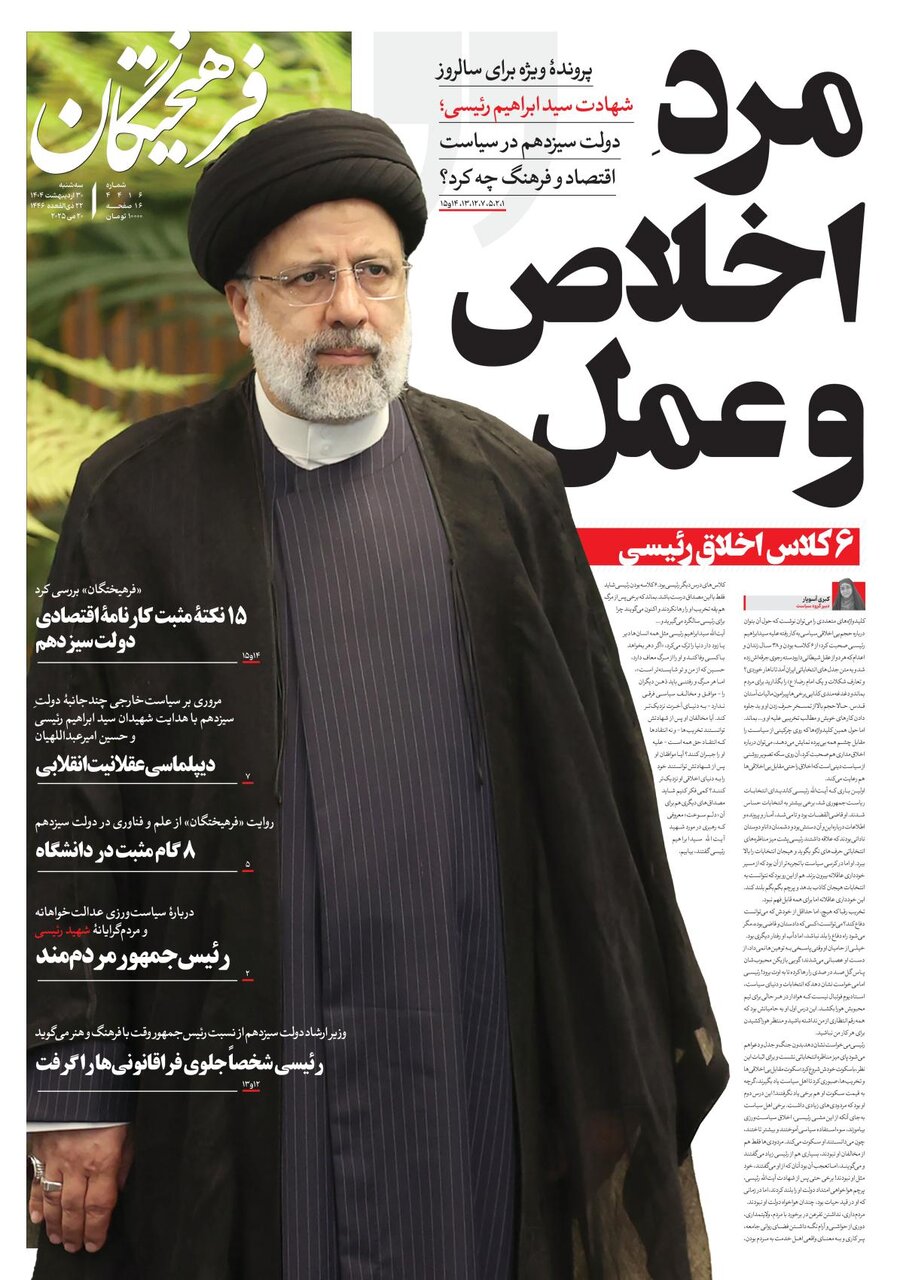Sharp and tense positions before the fifth round of negotiations

TEHRAN - Farhikhtegan addressed the tense atmosphere between Iran and the United States before the fifth round of negotiations and wrote: The fifth round of negotiations with the Americans has not yet begun, but the senior member of the American negotiating team has begun to raise ambitious demands in the media.
Steve Witkoff mentioned this issue in an interview with ABC on May 18 that the United States has a red line in negotiations with Iran, saying, ‘We cannot allow even 1% of an enrichment capability” by Iran. Araghchi responded that enrichment in Iran will continue. Of course, there is still uncertainty whether what the Americans raise in the negotiations differs from their media statements. But the Iranian Foreign Minister's response to these statements shows that putting pressure on Iran through the media is a failed project, and Iran will not back down from its right to enrichment. Iran is ready to build trust by not building nuclear weapons; but it will not give up on the right to peaceful enrichment, and more importantly, it will not give up on the Americans' excessive demands, and it does not consider any agreement better than no agreement, and it is not afraid of leaving the negotiating table.
Hamshahri: Tehran's green light for idea of ??a "nuclear consortium"
In an analysis, Hamshahri discussed the idea of a nuclear consortium and Iran's satisfaction with this proposal. The paper said: It is said that Iran has proposed a partnership with the United Arab Emirates and Saudi Arabia for uranium enrichment. Therefore, if this idea is accepted, Saudi Arabia and the Emirates will be shareholders and financial providers and will have access to Iranian technologies. The idea of ??creating a "nuclear consortium," although old, has once again become a topic of discussion and has provoked reactions amid indirect negotiations between Iran and the United States. Iran has shown its satisfaction with this proposal, but it remains to be seen whether the United States and the Persian Gulf Arab states are also satisfied. The participation of the Persian Gulf states in Iran’s enrichment project could be seen as a kind of “additional security guarantee,” meeting the U.S. requirement to ensure that Iran’s nuclear program will not be diverted to military purposes. Some Arab countries in the region have not welcomed the idea. Implementing such an agreement would make Saudi Arabia and other countries dependent on Iran, which they are unlikely to accept without U.S. or Russian guarantees.
Sobh-e-No: Why does Iran insist on enrichment?
Iran's uranium enrichment program is not only a technological program but also part of the country's strategic identity and scientific independence. The enrichment program is a symbol of independence and resistance to pressure from global powers. From this perspective, stopping enrichment would not only mean political concession but also a retreat from scientific and technological achievements. Uranium enrichment in Iran is not an end goal but a means to achieve strategic scientific, energy, medical, and industrial goals. Stopping this process means stopping the growth of indigenous knowledge and re-dependence on the West. In addition, the bitter experience of the JCPOA, during which, despite Iran's commitment, the Western parties did not fulfill their economic obligations, has made the Iranian negotiating team look much more cautiously toward a new agreement. Therefore, Iranian officials have warned that if enrichment is stopped under U.S. pressure, Washington's next step will be to put pressure on the country's missile program and then other security areas. In this regard, Araghchi has emphasized: “We are people of negotiation, not surrender.”
Jam-e-Jam: Iran is pioneer in regional diplomacy
Jam-e-Jam, in a commentary, addressed the Tehran Dialogue Forum and said: The forum, as one of the most prominent platforms of Iranian diplomacy, is an opportunity to exchange views, promote understanding, and explain Iran’s pivotal role in the new regional and global order. By adopting a “zero tension” policy with neighboring countries, the Islamic Republic of Iran has adopted an intelligent and pragmatic approach, a policy that is based on strengthening diplomatic relations, reducing tensions, and expanding economic and security cooperation between neighboring countries and the region. Iran’s zero-tension policy, given the dynamic diplomacy of the Ministry of Foreign Affairs and insistence on this policy by the Foreign Minister at the Tehran Dialogue Forum, demonstrates Tehran’s determination to create stability in West Asia and neighboring regions. Araghchi’s statement, emphasizing a fair (nuclear) deal coupled with termination sanctions, not only clarified Iran’s position on the nuclear talks but also emphasized Tehran’s role in promoting regional peace and security. In a region where foreign powers often seek to escalate disputes, Iran’s approach could serve as a constructive model for other countries in the region.
Leave a Comment